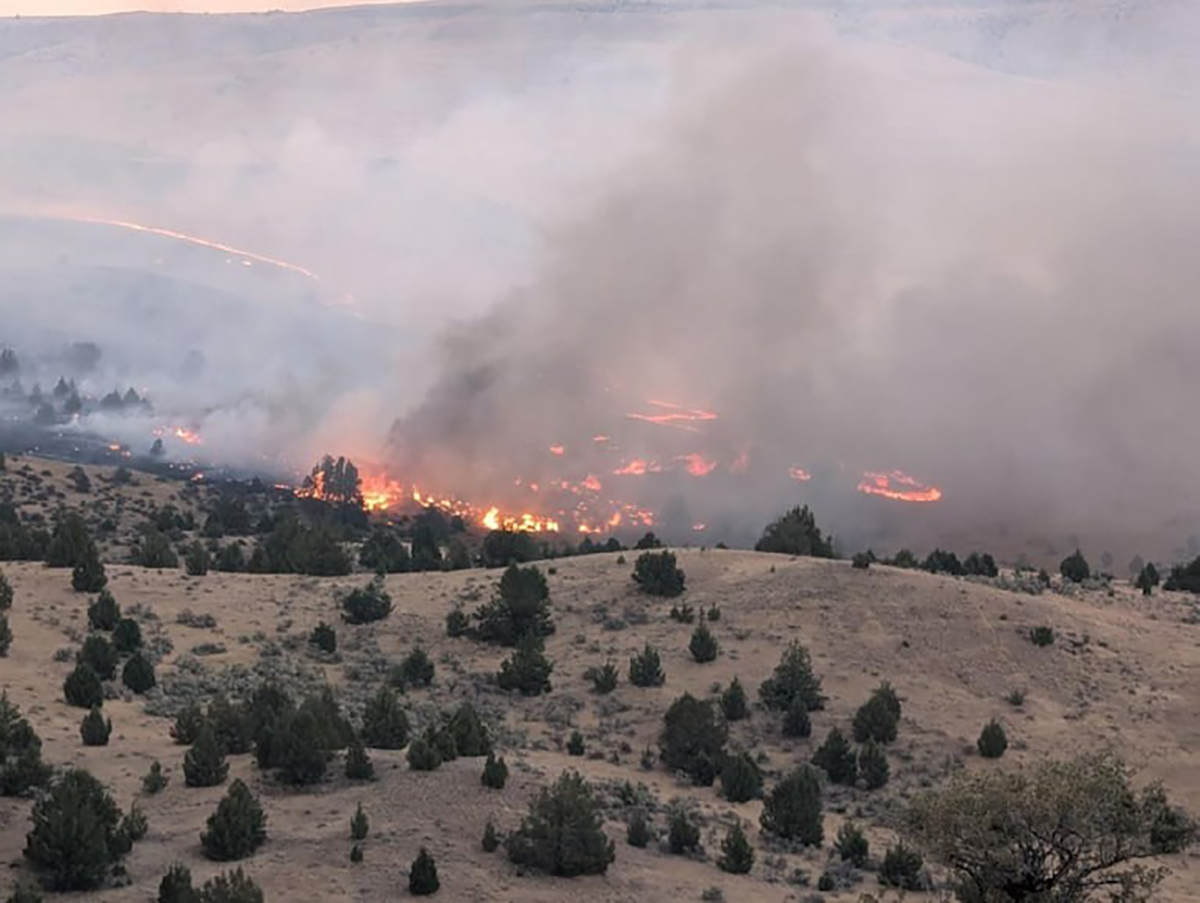Air quality advisories will remain active until at least 8 p.m. on Thursday for the Portland-Vancouver metro area, the Willamette Valley, and the Columbia River Gorge.
These alerts have been issued by the Southwest Clean Air Agency and the Oregon Department of Environmental Quality due to smoke and ozone pollution reaching harmful levels. Authorities caution that pollutants from wildfire smoke can cause eye irritation and a runny nose and may exacerbate serious health conditions. This interactive map allows you to see where fires are burning. Click on a marker on the map to see more information.
Smoke from area wildfires is expected to impact portions of NW OR & SW WA the next few days. Here is a forecast of what the smoke in the atmosphere might look like. Some of this smoke might make it to the surface, causing the smell of smoke & poor air quality. #ORwx #WAwx pic.twitter.com/sxg7hHGZXt
— NWS Portland (@NWSPortland) August 8, 2024
Pollution levels are anticipated to peak in the late afternoon and early evening. Those in vulnerable groups, including children, the elderly, and individuals with heart or lung diseases, are advised to limit outdoor activities.
In addition, air quality alerts are in place until at least Friday in various parts of Central Oregon, along the Southern Oregon Cascades, and in the Harney Basin of Eastern Oregon.
Do you love Oregon?
Sign up for monthly emails full of local travel inspiration and fun trip ideas. In each newsletter we'll share upcoming events, new things to do, hot dining spots and great travel ideas.
WILDFIRE NEWS 🔥 Night shift on the Elk Lane Fire west of Madras, Oregon 🎥 @oregonwff#wildfire #ElkLaneFire #MadrasOregon #Firefighters #NightShift #OregonFires #WildlandFire #CentralOregon #FireResponse #CommunitySafety pic.twitter.com/jc7RUc6EtG
— Kristy Tallman (@KristyTallman) August 7, 2024
For the latest air quality updates, visit AirNow.gov.
The SWCAA encourages the public to contribute to improving air quality by reducing emissions from vehicles, lawnmowers, and the use of paint and aerosol sprays while the alerts are in effect.
Tips to Help Deal with Smoke
- Monitor Air Quality
- Keep track of air quality in your area using websites like Oregon Smoke Blog and AirNow.
- Be aware that worsening air quality can increase the likelihood of negative health effects.
- Stay Indoors
- Close doors and windows to keep smoke out.
- Use wet cloths to seal any cracks where smoke might enter.
- If smoke is particularly bad or you have a large home, set up a single room as a clean room.
- Maintain Clean Indoor Air
- Use a portable air cleaner to purify the air inside.
- Run an air conditioner if available, but keep the fresh air intake closed.
- Use HEPA or MERV-13 filters to trap pollutants.
- Avoid Indoor Pollutants
- Do not use candles, fireplaces, or cigarettes that create smoke.
- Refrain from vacuuming or other activities that can stir up particles.
- Stay Hydrated and Alleviate Symptoms
- Drink plenty of water to help your body fend off inhaled particles and irritants.
- Use artificial tears or saline to moisten your eyes if needed.
- Wear the Right Mask Outdoors
- Cloth masks and face coverings for COVID-19 do not protect against wildfire smoke.
- Use masks (respirators) marked NIOSH with N95 or P100.
- Refer to the Environmental Protection Agency for proper mask usage guidelines.
- Protect Yourself When Driving
- Avoid driving when the air is thick with smoke due to low visibility.
- If travel is necessary, keep vehicle windows closed, use the air conditioner, and set it to recirculate air.
- Occasionally vent the air to prevent carbon dioxide build-up which can cause drowsiness.
- Look Out for Pets
- Remember that pets such as dogs and cats can also be affected by wildfire smoke.













